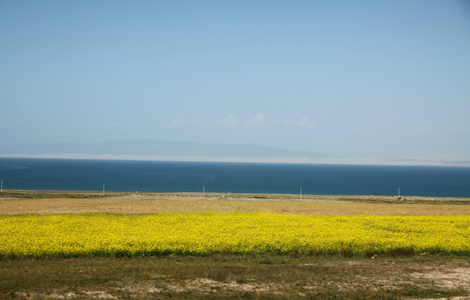China blasts US arms deal to Taiwan
Updated: 2011-09-23 10:45
By Zhang Yuwei (China Daily)
|
|||||||||
NEW YORK - China continued to rain down criticism on the United States' decision to upgrade Taiwan's F-16 fighter jets in a $5.8 billion arms deal with China's Foreign Minister Yang Jiechi calling on the US to "correct its mistake" and Defense Ministry spokesman Geng Yansheng describing the deal as the "wrong decision".
On Wednesday, despite China's repeated opposition, the US announced it will be upgrading Taiwan's fleet of F-16A/B fighter jets. The move immediately forced China to summon the US ambassador and warn the move would undermine warming military relations.
| ||||
"Facts prove that the US should be held fully accountable for damaging military relations," Yang said. "The China side urges the US side to fully recognize that US arms sales to Taiwan is a highly sensitive and harmful decision."
Defense Ministry spokesman Geng said questions related to Taiwan concern China's sovereignty, territorial integrity and core interests.
"We strongly urge the US to take immediate and effective measures to remove the negative impact and respect China's core interests and honor its solemn commitment on the Taiwan question," Geng said.
He said that China-US military relations have been in a vicious circle because of arms sales to Taiwan.
The State Council Taiwan Affairs Office also said on Thursday that the move by the US runs counter to the "hard-won warming momentum cross the Taiwan Straits".
Shortly after the US' Wednesday announcement, China's Vice Foreign Minister Zhang Zhijun summoned US Ambassador Gary Locke and lodged a strong protest against the deal.
Zhang Yesui, the Chinese ambassador to the US, also made his case against the deal in Washington DC.
"The wrongdoing by the US side will inevitably undermine bilateral relations," Zhang Zhijun said.
"China strongly urges the US to be fully aware of the high sensitivity and serious harm of the issue, seriously treat the solemn stance of China, honor its commitment and immediately cancel the wrong decision," he reportedly told Locke.
Experts in China also joined the chorus of criticism.
"Does the US have any concept of time and quantity?" said Luo Yuan, a military expert with the Academy of Military Science. "(US President Barack) Obama was wise not to sell the more advanced model, the F16 C/D, but it was absolutely wrong for him to agree to update the F16A/B. He may have chosen the lesser evil, but there is only one correct choice for the US, and that is to stop selling arms to Taiwan."
Qu Xing, president of the China Institute of International Studies, a policymaking agency affiliated with the Foreign Ministry, said that "China is bound to retaliate".
He explained that retaliatory measures are likely to be taken in military exchanges and that the arms sale will encourage separatists in Taiwan.
Peng Guangqian, a Beijing-based military strategist, said that the Chinese government is weighing countermeasures.
"Retaliation will be tit for tat," he said.
Tao Wenzhao, a senior researcher at Tsinghua University, said that given the severity of the issue, China is poised to fight back.
Song Xiaojun, a military strategist in Beijing, said "Obama's decision is short-sighted and aimed at winning votes in the presidential election. It will soon be proven wrong."
Earlier this year, China and US increased military exchanges with senior US defense officials. Some experts, however, have seen Taiwan as a thorny issue between US-China relations.
"The most challenging issues (between the US and China) will be providing security assistance to Taiwan, North Korean nuclear weapons and sovereignty in the South China Sea," said Daniel Goure, vice-president of the Lexington Institute, a nonprofit public-policy research organization in the US.
John Feffer, co-director of Foreign Policy In Focus at the Institute for Policy Studies, said that Obama administration's decision of "an upgrade rather than the sales of the actual planes" was to "minimize friction with Beijing".
"This is not an easy decision for the administration to make, given the huge profit associated with arms sales and the jobs connected to the production of F-16s. I expect that the upgrade will not seriously damage relations with Beijing, though of course US-Taiwan relations will continue to be a difficult issue in both US-China and cross-Straits relations," Feffer said.












